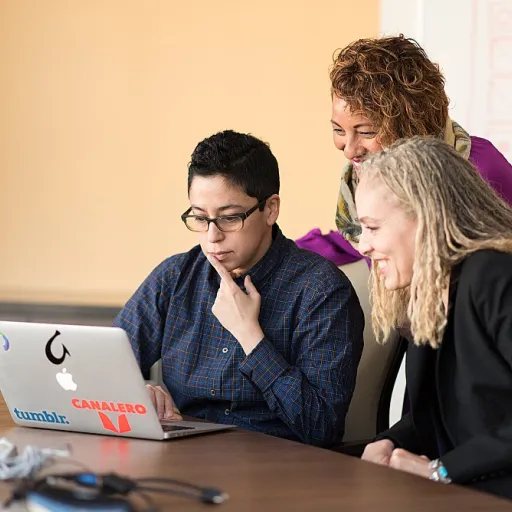Understanding the Importance of Office Olympics
Unleashing the Spirit of Friendly Competition in the Workplace
Delving into the world of office Olympics can significantly enhance employee engagement and foster a sense of unity. These kinds of activities go beyond regular work interactions, allowing team members to mingle in a relaxed, fun setting.
Consider introducing simple yet effective games like ping pong, paper airplane throwing, or rubber band archery for a start. These games not only inject a dose of fun into the work setting but also promote an energetic atmosphere that can boost team morale. Hosting office Olympics highlights the playful side of the Olympic Games, transforming the workplace into a mini playground where creativity and camaraderie flourish.
Moreover, there's a growing trend of organizing office Olympics for remote teams. Games like typing speed contests or virtual scavenger hunts bridge the gap between remote teammates, maintaining their engagement. As each game plays out, regardless of who wins, every participant gains something invaluable—a stronger bond with fellow workers.
Engaged employees often display higher levels of satisfaction and a natural propensity toward teamwork and collaboration. A well-curated office Olympics can be a stepping-stone toward
enhancing teamwork through effective performance review phrases. The benefits of integrating these events in your workplace can be monumental, fostering an environment where team building seamlessly merges with professional growth.
Planning Your Office Olympics Event
Crafting the Perfect Office Olympics Plan
Creating a successful Office Olympics event requires careful planning and organization. It's not just about having fun, but also about fostering camaraderie and enhancing team dynamics. Here are some key steps to consider:
- Set Clear Objectives: Before diving into any games, it's important to define what you want to achieve with your Office Olympics. Whether it’s boosting morale, encouraging creativity, or building better teams, having clear goals will guide your entire event planning process.
- Choose a Suitable Venue: Depending on your office space, consider the best area to hold the games. A large conference room or an open area may work for physical games, while computer stations could benefit activities like virtual scavenger hunts.
- Select Inclusive Games: Aim for inclusivity by selecting games that cater to different interests and abilities. Whether it's a ping pong tournament or a typing speed challenge, try to include a variety of activities ensuring everyone has the chance to win and enjoy.
- Develop a Schedule: Structure your Office Olympics with a detailed schedule. Allocate enough time for each game, breaks, and a closing ceremony where winners are announced and celebrated. This helps maintain the momentum and ensures participants remain engaged throughout the event.
- Gather Materials: Make a list of materials needed for each activity, such as rubber bands for a rubber band archery game or paper for paper airplane contests. Having everything ready will minimize last-minute stress and allow you to focus on making the day enjoyable for everyone involved.
- Form Teams Strategically: Mixing team members from different departments can stimulate cross-departmental interaction and collaboration. Encourage teammates to play to their strengths and potentially discover hidden talents, boosting team spirit in the process.
- Plan for Remote Teams: If you're dealing with remote employees, integrate activities remote participants can enjoy, like virtual trivia or online collaborative puzzle games. This can ensure that all employees, regardless of location, feel included in the festivities.
By carefully preparing each element, you're not only laying the groundwork for a memorable event but also engaging your team in meaningful ways. For more ideas on engaging events, explore
enhancing employee connection through engaging activities. This added layer of preparation ensures that your Office Olympics event becomes an office tradition everyone looks forward to year after year.
Fun and Inclusive Office Olympics Ideas
Innovative Games to Spice Up Your Office Olympics
Creating engaging and inclusive activities is crucial when hosting office olympics. The goal is to ensure that everyone, from the most competitive to those who enjoy lighter challenges, finds an event they enjoy. Here are some exciting ideas:
- Ping Pong Tournaments: A classic choice for office games, ping pong allows team members to enjoy some friendly rivalry. Set up several tables if space allows, and watch as different "players" showcase their skills. For remote employees, consider using virtual ping pong simulators.
- Paper Airplane Distance Challenge: This activity involves creativity and precision. Teammates craft their best paper airplanes to see whose can glide the furthest. It's a simple, low-cost way to involve both office and remote teams.
- Typing Speed Race: This is a great way to include everyone in a quick, yet exciting activity. Employees compete to achieve the highest typing speed within a set time frame. Bonus points can be awarded for accuracy.
- Scavenger Hunts: Organize a list of items to find around the office or online. This not only promotes team-building but also encourages communication and problem-solving among team members. For remote teams, adjust the hunt to include digital tasks.
- Rubber Band Archery: Use simple office supplies like rubber bands and paper cups to create a makeshift archery challenge. See which team can score the most "points" by knocking down targets.
Incorporating these fun and thoughtful activities into your office olympic events can significantly enhance the overall experience. Each game will engage your teammates differently, leading to an inclusive and lively atmosphere. Remember, these olympics ideas aren't just about who wins but rather the fun and laughter shared along the way. For more affordable ways to appreciate and engage your team, check out this
resource.
Incorporating Team Building into Office Olympics
Integrating Collaboration and Unity through Office Olympics
To make the most out of your office olympics activities, find ways to integrate team building into the fiery fun of competition. Each game will not only be a test of skill and speed but should also serve as a platform to foster communication and collaboration among team members.
- Collaborative Games: Encourage camaraderie by including activities that require teamwork. A scavenger hunt is an exciting idea where teams must collaborate to find items around the office. Adapt challenges to include both in-person and remote employees to ensure inclusiveness.
- Team-Based Competitions: Break projects into team games. For example, a paper airplane contest where teams design and launch their creations to achieve the best flight. Or consider a rubber band archery challenge where players combine their inventiveness and coordination skills.
- Remote Teams Engagement: Ensure activities also cater to remote teams. Typing speed competitions held over a shared digital platform can allow all teammates, regardless of location, to participate and play actively.
- Interactive Championships: Organize a round of Olympic games, combining traditional events like ping pong tournaments with innovative office olympics ideas. These can include amusing challenges such as rubber band flicks, head-to-head typing races, and other friendly competition.
Incorporating these activities into your event can help build a sense of unity and cooperation among your teammates, turning your office olympic games into much more than just fun distractions—they become opportunities for genuine team building and cultural enhancement. This will not only lead to points for individual wins but will also positively impact your overall work environment.
Measuring the Impact of Office Olympics
Evaluating Team Performance and Success
Measuring the impact of your Office Olympics goes beyond counting the number of gold medals won. It’s crucial to take a holistic approach to evaluate team performance and overall success. Here are some key factors to consider:
- Team Engagement: Did team members actively participate in the events? Look at the level of enthusiasm during each game. Activities like ping pong or rubber band archery can offer insights into how engaged team members were.
- Skills Development: Assess whether employees enhanced specific skills. For instance, typing speed challenges or scavenger hunts might improve quick thinking and coordination, important for building a cohesive work environment.
- Inclusivity: Review participation across all teams, including remote teams. Ensure that activities remote employees could partake in, like virtual olympic games or remote paper airplane contests, were accessible and engaging.
- Team Bonding: Did the Office Olympics foster a sense of camaraderie? Evaluate whether activities such as team-building games helped strengthen relationships amongst teammates.
- Award Recognition: Incorporate feedback about how awards, such as bonus points for creative ideas, were received by employees. Recognition often boosts morale and motivates players to strive for the best.
- Impact on Productivity: Observe whether organizing Office Olympics translates into improved motivation and productivity in regular work duties. Sometimes, a well-hosted office event can rejuvenate the whole office environment, resulting in better outputs over time.
Gathering feedback through surveys or informal chats can provide valuable insights into these areas. By understanding the real impact of your Office Olympics, you’ll be better equipped to refine future events, ensuring they remain a fun, enriching experience for all participants.
Overcoming Challenges in Organizing Office Olympics
Addressing Common Hurdles in Hosting Office Olympics
Planning Office Olympics can be an exciting endeavor but comes with its own set of challenges. Here are a few common hurdles one might encounter, along with tips to overcome them:
- Coordination and Scheduling: With a busy office environment, finding the perfect time that works for everyone can be difficult. To address this, consider taking a poll or using scheduling apps to determine the most convenient time for the majority of your team members. For remote employees, ensure activities can be done asynchronously or during mutually agreed time slots.
- Equipment and Material Shortages: Depending on the proposed games, you might find a shortage of required materials. Be it paper airplanes, ping pong balls, or rubber bands, planning ahead is essential. Consider alternative ideas that utilize readily available resources within the office or organize a small budget to purchase necessary items.
- Inclusivity Concerns: While the goal is to have fun, it's crucial to ensure that all employees feel included. To achieve this, design games and activities that can cater to diverse abilities and preferences. For instance, mix physical games with mental challenges like typing speed contests or digital scavenger hunts.
- Participation and Engagement: Getting everyone excited and involved can be a task. To encourage participation, emphasize the fun aspect and the team-building opportunities. Offer small incentives or prizes, such as bonus points for team spirit or creativity, to boost engagement. Celebrating each player’s contribution and acknowledging the best efforts can foster a sense of accomplishment.
- Balancing Competition and Collaboration: While competition can be motivating, it's important not to let it overshadow the collaborative aspect. Educate participants on the objective of strengthening team bonds and remind them that it's not just about who wins, but how the game will contribute to a more cohesive work team.
By recognizing and addressing these challenges, your Office Olympics event can effectively foster team building and create a memorable experience for all participants. Engaging in such activities is a step forward in building a positive and dynamic office culture.














